“Knowledge is also a form of emergency preparedness”
The new security policy situation, stagnating funds for basic research, and the Master’s degree reform were some of the topics covered when the rector, chair of the board and minister stepped onto the podium in the Main Hall. Read extracts and speeches from AU’s celebration of its 96th anniversary.
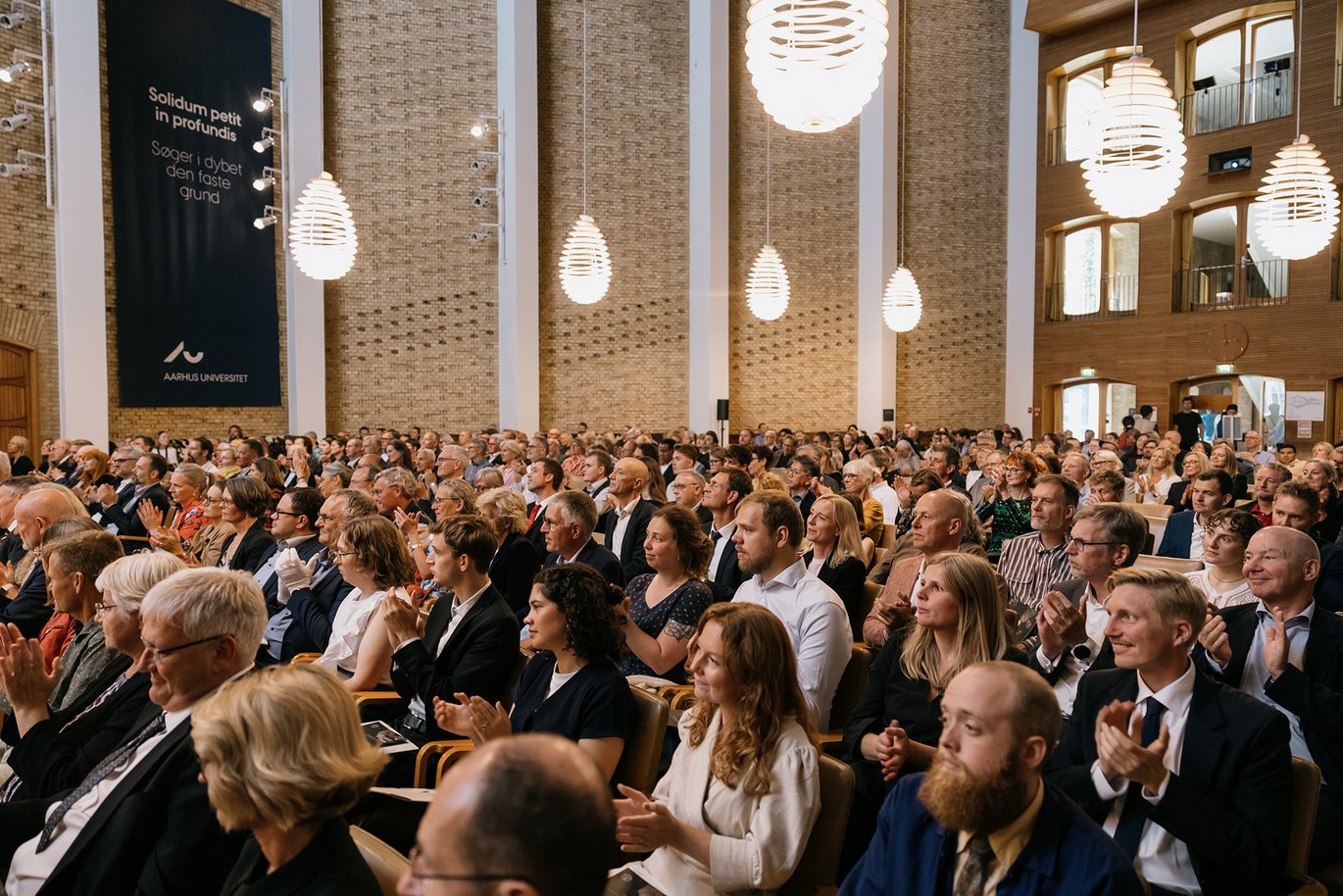
Speakers at Aarhus University’s annual celebration took inspiration in everything from Danish musicians to the Voyager 1 spacecraft when they addressed a packed Main Hall on Friday 13 September.
In the first speech of the day, chair of the board Birgitte Nauntofte thanked staff and students for their outstanding contributions over the past year and went on to praise the unique culture of basic research ar Aarhus University, which has taken years of hard work and investment to achieve. This investment has been possible thanks to many years of stable financing from the state to the universities through so-called ‘basic funding for research’. But this funding has stagnated – and this could have serious implications for the breadth of the university’s research palette:
“If there’s one thing we’ve learned from the last couple of years, it’s that we can’t predict what kind of knowledge there might suddenly be a very urgent need for. It wasn’t all that long ago that understanding Russia and China was a low priority, politically speaking. There was also a pandemic recently, and suddenly RNA research was the hottest trend. You might put it this way: Knowledge is also a form of emergency preparedness,” said Birgitte Nauntofte.
Rector Brian Bech Nielsen: Optimism and healthy realism
In his speech, Rector Brian Bech Nielsen addressed the new lines of conflict in the world and their impact on the universities, where terms such as espionage and unintentional knowledge transfer have become part of our everyday vocabulary. The rector emphasised that Aarhus University is keen to comply with the demands of the state and intelligence services, but that it is also with a heavy heart that we are forced to compromise fundamental ideals relating to the free exchange of knowledge and talent.
“Science is founded on – and thrives on - openness and collaboration. Not war, fear and distrust. But fortunately, hope for the future is intrinsic to the essence of science. Knowledge works – knowledge matters! Knowledge takes us forward. That’s precisely why it’s important that we hold on to our curiosity and optimism, along with a degree of idealism coupled with a healthy realism – despite the challenging times we live in,” said Brian Bech Nielsen, who also spoke about the implementation of the Master’s degree reform, which has become somewhat of a Herculean task for universities in Denmark.
“We respect the intentions behind the agreements made by the Danish parliament. We do our very best to deliver on the tasks we’re assigned – even when they’re painful. But we’re also under an obligation to point out the discrepancy between political intentions and what’s possible within the given framework. We’re positive about the idea of flexible new Master's degree programme for working professionals – but it will be hard to realise them within the financial framework of the reform. Loosening this framework would be really helpful here,” said Brian Bech Nielsen.
Read Brian Bech Nielsen’s speech in full
Minister for Higher Education and Science Christina Egelund: The role of universities is now even clearer
Christina Egelund expressed her gratitude for the constructive collaboration she has enjoyed with the university, and she praised the unique fighting spirit that has characterised AU from the outset, when Aarhus fought determinedly to become the home of Denmark's second university. Christina Egelund also went off script and agreed with Birgitte Nauntofte that the time was right to examine the support given to research, so that universities in Denmark can occupy a strong position in a changing world. By alluding to a song by Danish musician Steffen Brandt, she questioned whether the world had lost its mind before continuing to emphasise the clear role of universities in today’s society.
“That doesn’t mean there isn’t hope The vital role of the university has become even clearer – your research, innovation, teaching and formative education are the values that will take our society forward. Science is our safeguard against the divisions spreading across our society. With research comes the hope that we can solve the problems we are facing. New knowledge, new discoveries, and new technology will make our society stronger and greener,” said Christina Egelund.
Student speaker Karen Porskrog Boisen: We need to foster our student associations
Medical student Karen Porskrog Boiesen focused on student well-being and explained how she overcame feelings of loneliness at the start of her degree by joining the Medicine Students’ Council, which enabled her to participate in meaningful communities and form close friendships that have carried her through challenging times:
“I dream of an AU where student clubs and associations are given even greater priority and value. I believe that clubs and associations can help combat the lack of well-being that many students experience, but we need to safeguard them,” said Karen Porskrog Boisen.
Distinguished alumnus Jens Peter Christensen: AU and the Supreme Court are similar
This year's distinguished alumnus is Jens Peter Christensen, president of the Supreme Court of Denmark, whose extensive and wide-ranging contributions to public debate have helped give the country’s population a clearer picture of how the Danish legal and Supreme Court systems work.
Jens Peter Christensen thanked everyone for the award and went on to describe his first encounter with Aarhus University, which wasn’t the greatest success. He studied medicine, economics and political science before becoming a lawyer at the age of 36. From there he rose through the ranks to professor and later to president of the Supreme Court.
“Aarhus University and the Supreme Court are similar in many ways. In both places, it’s the subject matter that counts. The subject matter and the respect for facts and the importance of the task at hand. And, in both places, everybody shares a strong commitment, a strong sense of responsibility, and a desire to do the very best they can – with true integrity. We seek solid ground in the depths. I owe Aarhus University a debt of gratitude for all of this,” said Jens Peter Christensen.
Read a portrait of Jens Peter Christensen
Watch a video about Jens Peter Christensen
The annual celebration concluded with a concert in Concert Hall Aarhus for AU staff and external partners. Performers included Nabiha, Cæcilie Norby, Lau Højen, Søren Sko and Dopha. While the annual celebration was taking place in the Main Hall and Concert Hall Aarhus, students celebrated Denmark's Biggest Friday Bar and Sports Day in the University Park.
Other honours and awards
Karin Lykke-Hartmann, professor of anthropology, received the Else Kai Sass Award.
Honorary doctorates were conferred on the following five researchers:
Professor Ann Phoenix (Arts)
Supreme Court Justice Jørgen Steen Sørensen (Aarhus BSS)
Professor Sharon Lewin (Health)
Professor Anthony J. Ryan (Nat)
Professor Anne S. Kiremidjian (Tech)
Read more about the recipients of Aarhus University’s honorary doctorates
The following five students received Queen Margrethe II travel grants:
Johan Trap-Godau (Arts)
Amalie Andkær Pedersen (Aarhus BSS)
Amalie Quist Rousing (Health)
Rebecca Fjord Jørgensen (Nat)
Carl Johan von Düring Lausen (Tech)
Read more about the travel grant recipients
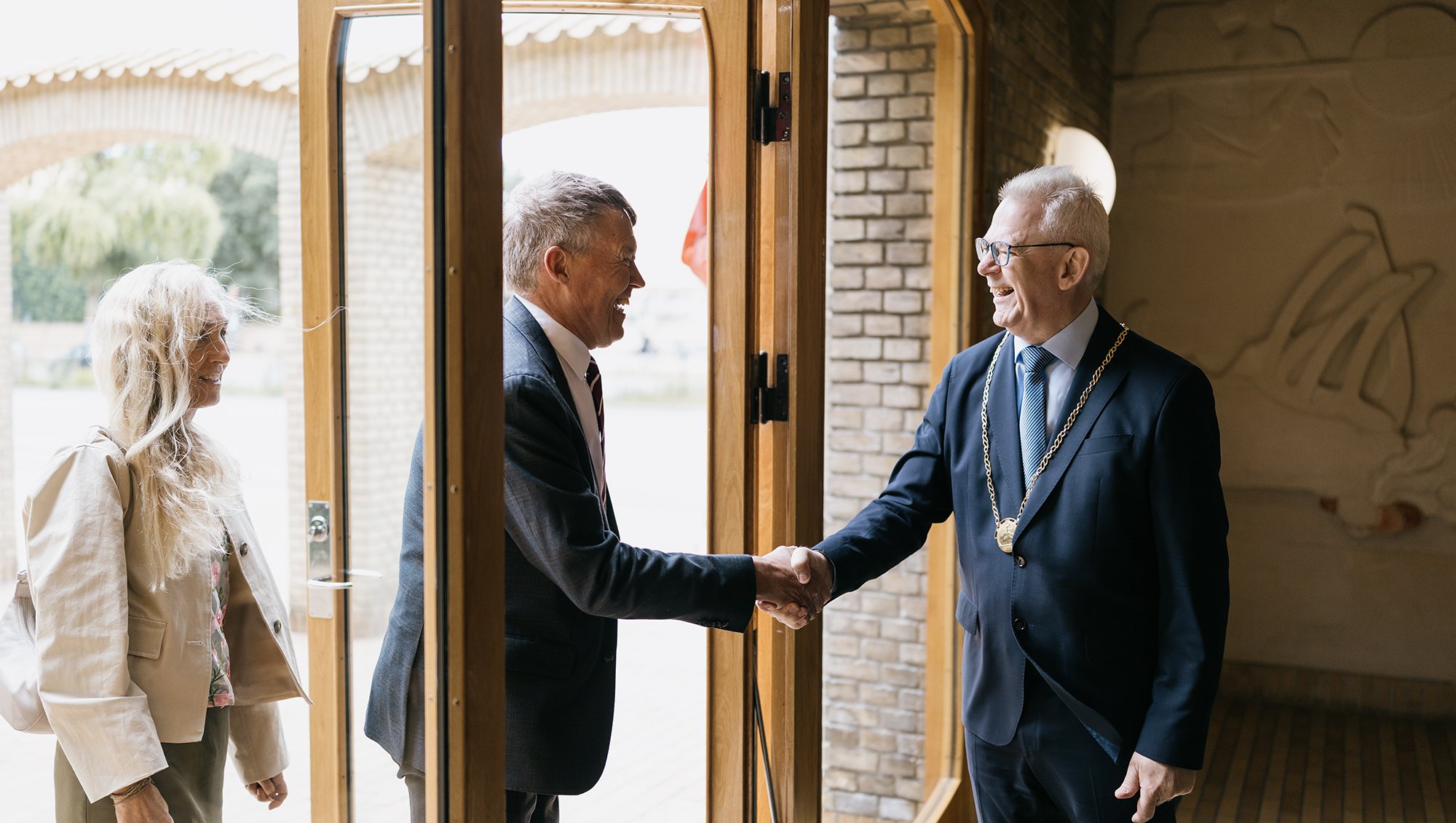
![[Translate to English:] Bestyrelsesformand Birgitte Nauntofte holder tale.](/fileadmin/_processed_/2/9/csm_A__rsfest24_5_Andrea_1c9c27c3c7.jpg)
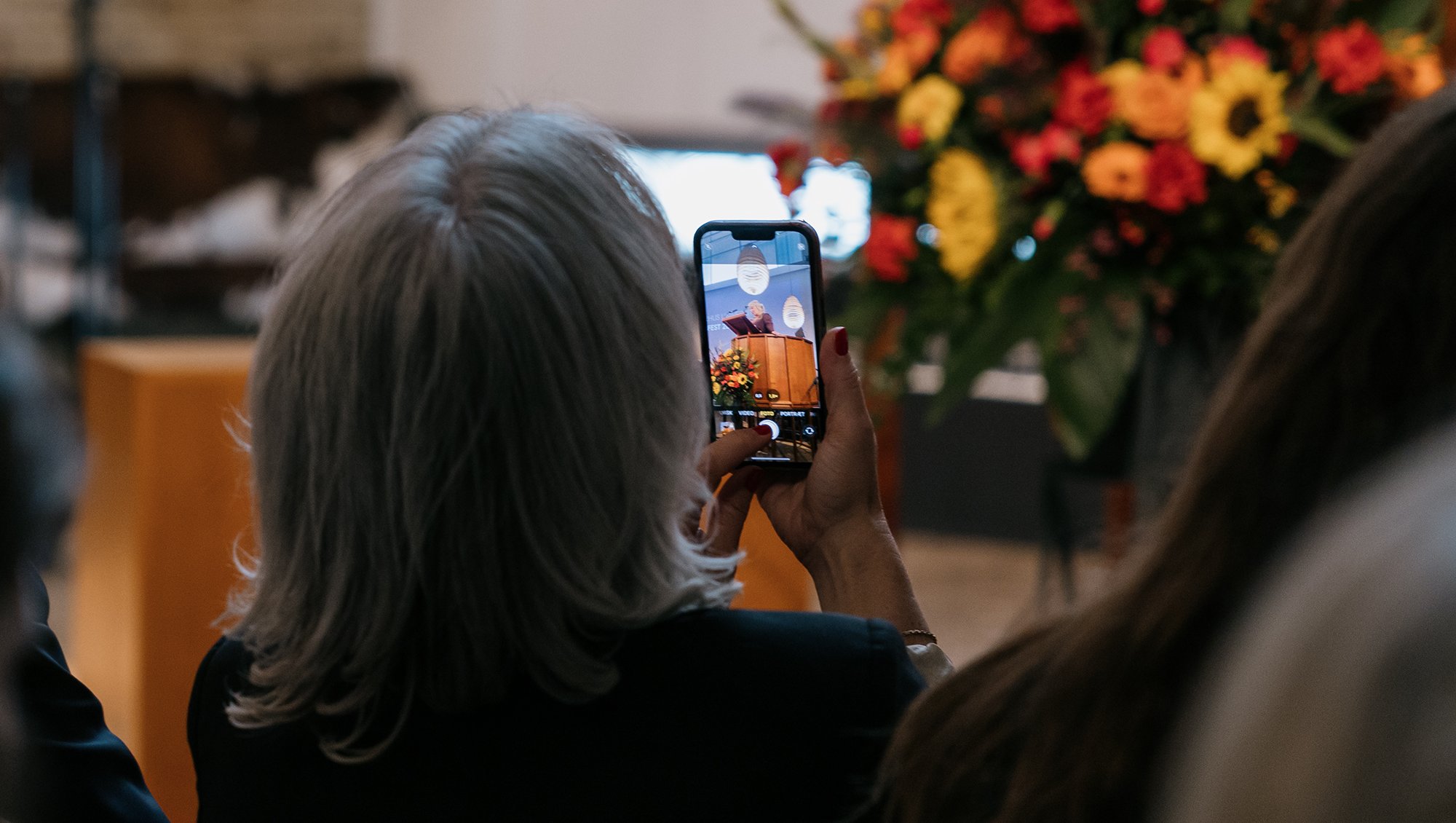
![[Translate to English:] Rektor Brian Bech Nielsen holder tale.](/fileadmin/_processed_/4/5/csm_AArsfest24_6_JHS_18f40dcb77.jpg)

![[Translate to English:] Uddannelses- og forskningsminister Christina Egelund holder tale.](/fileadmin/_processed_/d/0/csm_AArsfest24_6__JHS_d375856548.jpg)
![[Translate to English:] Medicinstuderende Karen Porskrog Boiesen holder tale.](/fileadmin/_processed_/1/9/csm_A__rsfest24_3_Andrea-_3f15529119.jpg)
![[Translate to English:] Koret Vocal Line synger](/fileadmin/_processed_/1/1/csm_AArsfest24_9__JHS_8b471cdb45.jpg)
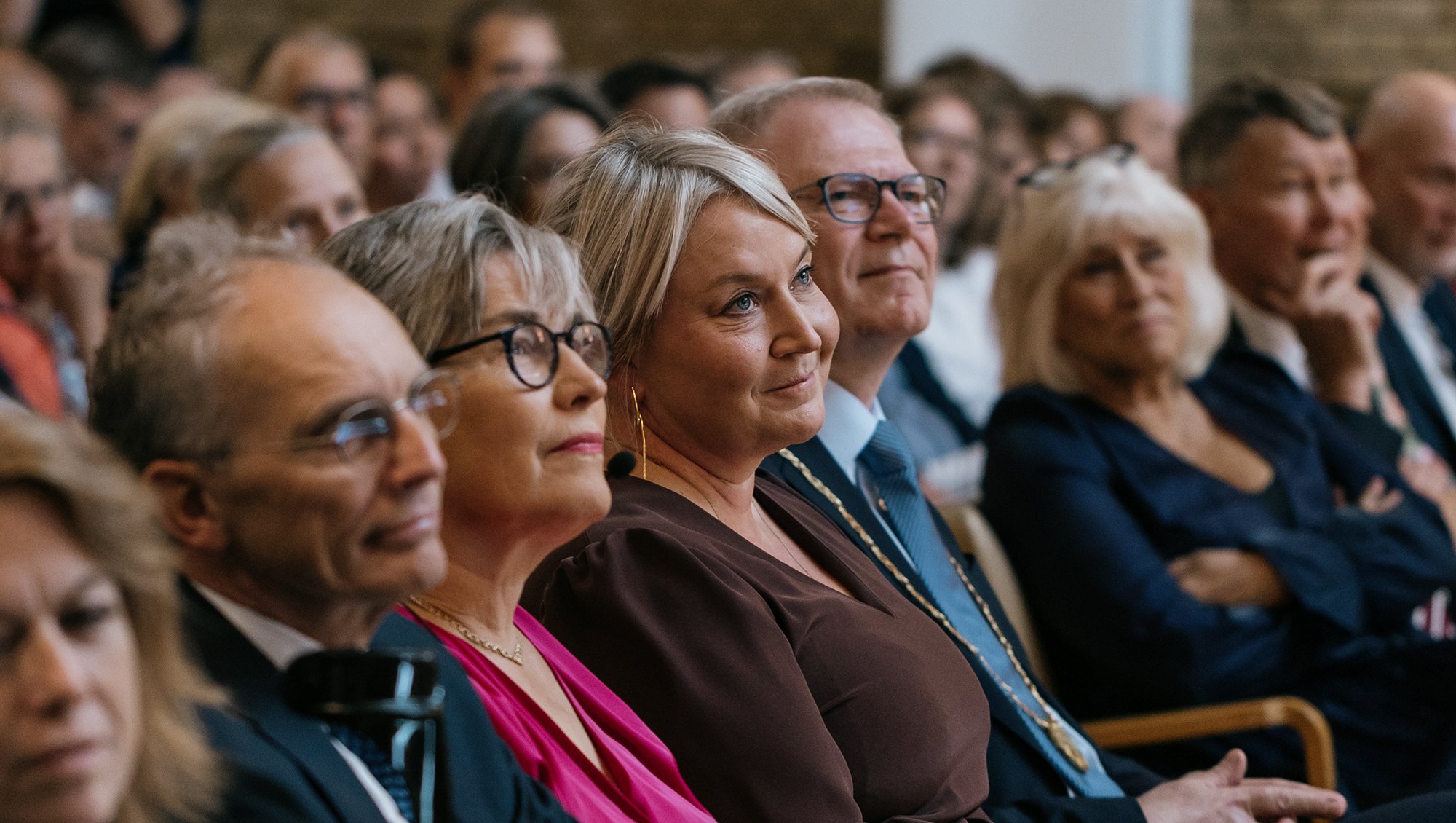
![[Translate to English:] Æresalumne Jens Peter Christensen holder tale.](/fileadmin/_processed_/d/3/csm_AArsfest24_aeresalumne_JHS_7a0a4d8df1.jpg)
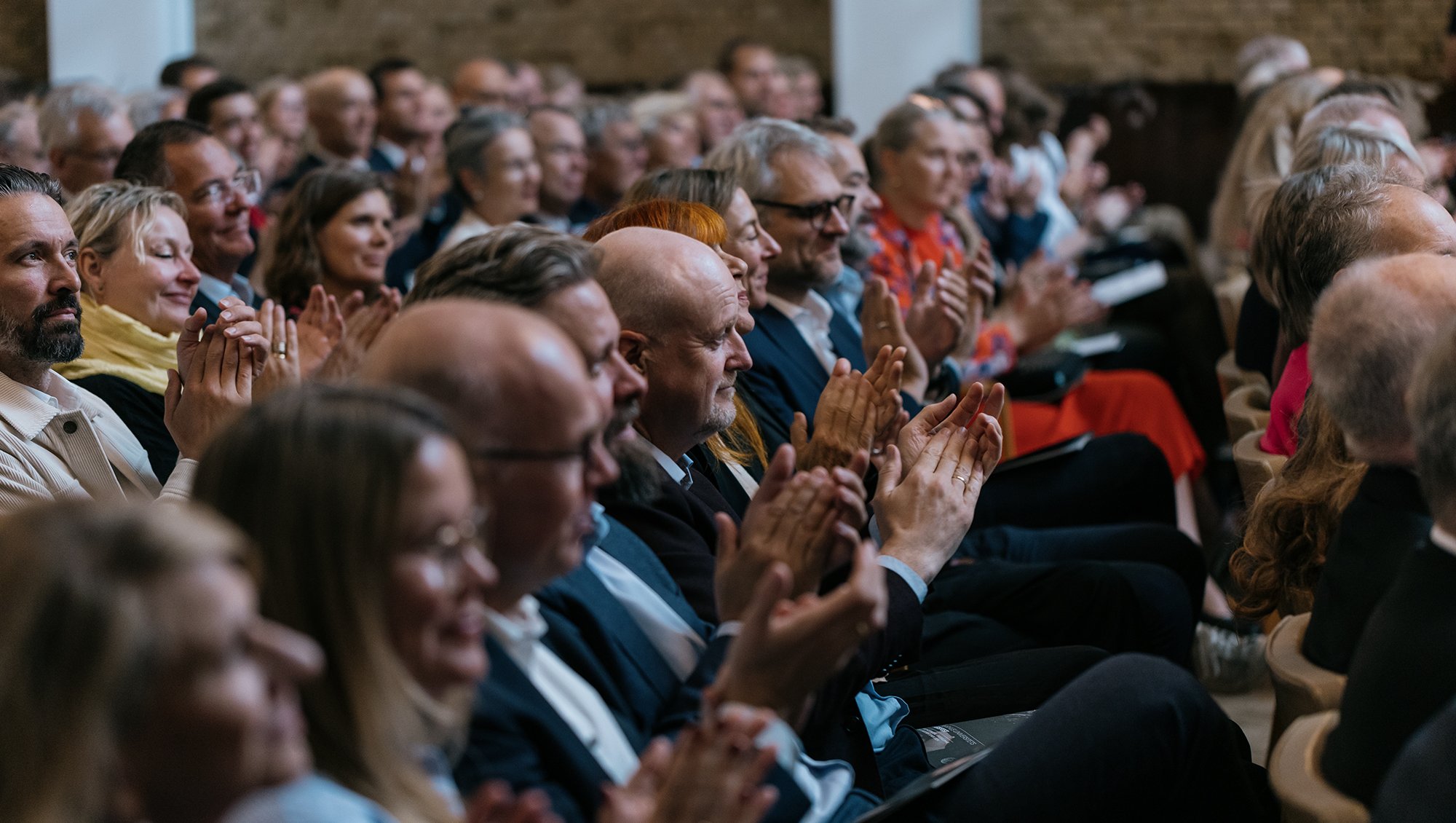

![[Translate to English:] De 3 prismodtagere sammen med rektor Brian Bech Nielsen og prorektor Berit Eika](/fileadmin/_processed_/3/e/csm_AArsfest24_12_JHS_d37db29656.jpg)
![[Translate to English:] Æresdoktorerne](/fileadmin/_processed_/4/d/csm_AArsfest24_aeresdoktorer_JHS_3c50136995.jpg)
![[Translate to English:] Dronningens legatmodtagere.](/fileadmin/_processed_/b/b/csm_AArsfest24_14__JHS_a28a7b2990.jpg)
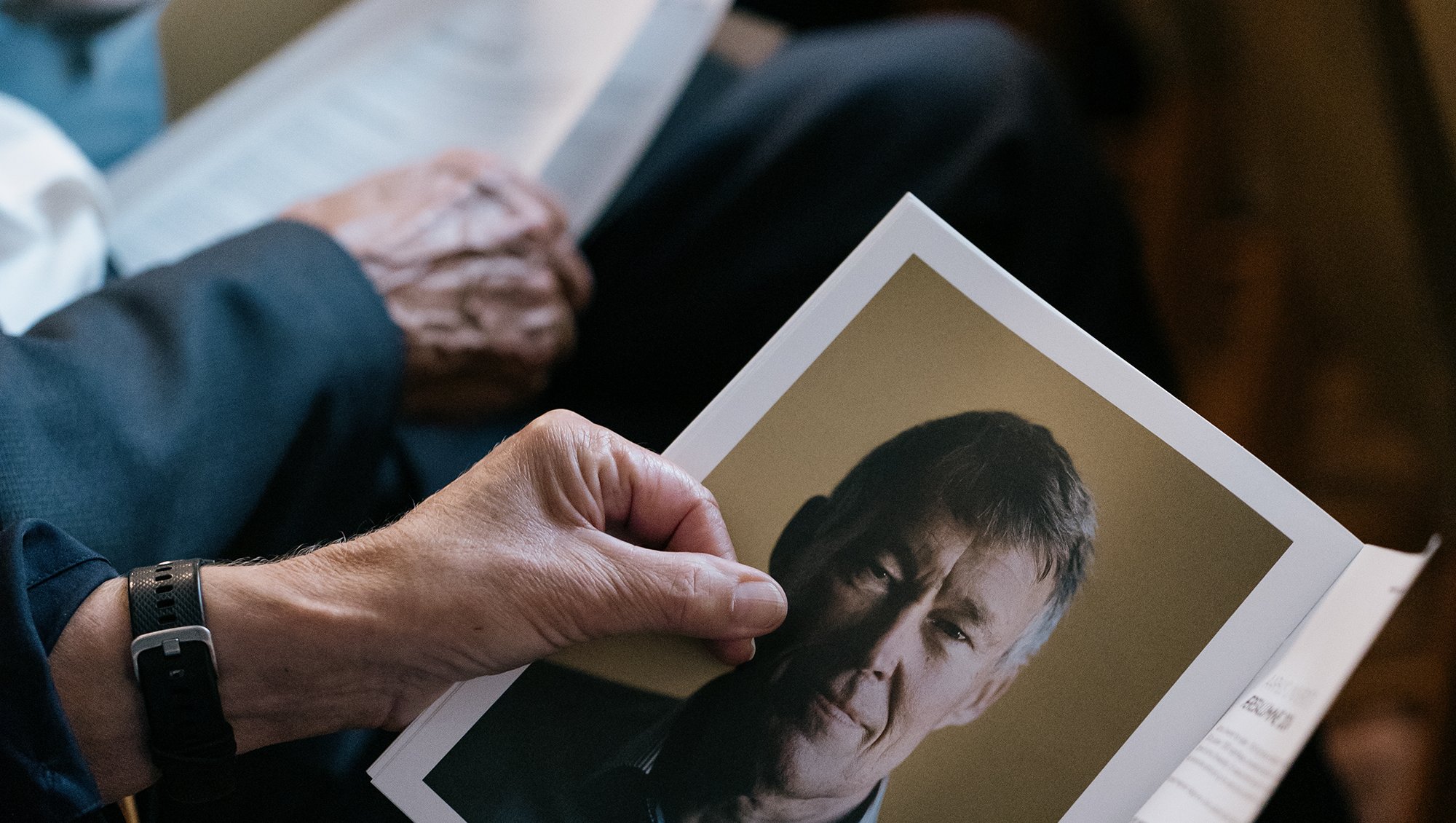
![[Translate to English:] Æresdoktor fra Arts Ann Phoenix.](/fileadmin/_processed_/2/0/csm_JHS_Ann_Phoenix_2024_1280px_8ac9165154.jpg)
